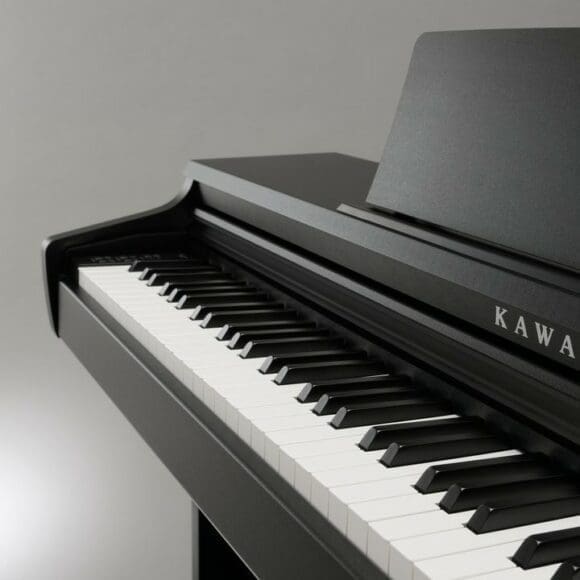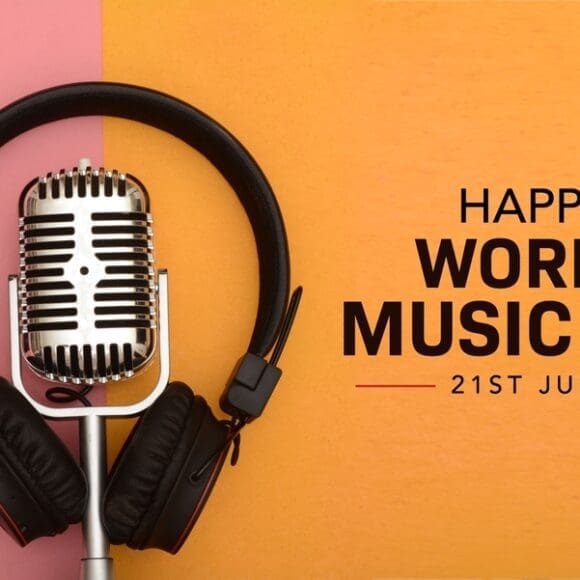
Nearly everyone is guilty of at least one bad habit in life. Drinking too much coffee, not getting enough exercise, biting nails, or spending too much time on tech.
Bad habits can be difficult to break, but nothing says fresh starts and new beginnings quite like a new year. So as 2022 dawns, there’s no better time to take a closer look at your piano playing and put a stop to bad habits that could be holding you back from your true playing potential.
What’s wrong with ‘bad’ habits?
The clue is in the question – they’re ‘bad’ not ‘good’, which means that even if the habit may seem small and insignificant, it could still limit your progress.
Bad playing habits can:
- Prevent you from reaching your full potential
- Make playing more difficult and frustrating
- Put unnecessary strain on your body
9 common bad piano playing habits
1. Playing too fast
We’ve all seen it a million times before. When a nervous public speaker stands to deliver a speech and does so perfectly but whilst barely pausing to draw breath.
The same goes for a pianist. It’s all too easy to get carried along by a rush of nerves, especially if it’s a new piece, and a desire to get from start to finish without making any mistakes.
It’s a common pitfall but one it’s important to avoid to improve your playing. Instead, start slow. Learn the entire piece at a much gentler speed and only increase the tempo once you’ve mastered the entire piece – otherwise, you run the risk of playing correctly for the most part, but having to slow down for the trickier sections.
2. Playing too loudly
Hammering the keys – or playing too quietly – is a trap numerous players fall into, but correct volume control can make or break a piece of music.
If you’re learning a composition without the aid of a piano teacher then it can be difficult to fully assess how you’re playing.
Our best advice? Record yourself. Listen back to evaluate how your playing sounds and if your playing volume needs adjusting.
3. Incorrect fingering
This is a habit really worth kicking and, once you do, you’ll realise how much easier playing can be.
Incorrect fingering of the keys can not only tie your fingers up in knots, it makes it more difficult to reach notes, keep in time and play fluently.
4. Getting the expression wrong
There’s much to concentrate on when playing the piano and reading music, so it can be easy to miss something.
Legato, staccato – numerous expressions can be highlighted within a piece which, if missed, will affect the entire feel.
Make the most out of every piece, and play each note as it was intended, by making sure you always check for notations on expression. It’s also important that you’re confident you understand exactly what each symbol and term means – a smooth staccato will never work!
5. Bad posture
No one wants to hunch over keys or sit so far away they’re having to overstretch just to play a note. Failure to position yourself at the correct distance from the piano can not only affect your playing, it can also lead to backache and strain.
The good news is, poor piano posture is easy to fix!
To sit properly, ideally, your weight should be centred. Sit straight and tall with a slight angle forward (if you’re leaning in too much, it probably means your stool is too far away). Your forearms should run parallel to the floor, your back needs to be straight and your shoulders relaxed.
Remember, no matter how good your posture is, it’s still important to take regular breaks. Stand up, stretch and take a little walk about to reduce tension and prevent strain.

6. Poor hand positioning
It’s not just bodies that can be in the wrong position – hands can be too!
Not sure if your hand posture is correct? Try balancing a coin on the back of your hand while running through scales. If it stays in place, then there’s nothing to worry about. But to make sure you don’t slip into bad habits, it’s worth trying out the coin test every once in a while, to help keep your hand positioning in check.
7. Never listening to your own playing
We touched on this with number 2 – playing too loudly, but the importance of listening to your own playing should never be underestimated. It helps you to get an accurate idea of your performance and identify areas for improvement.
8. Not enough practice
Guilty as charged? We thought so. But you’re not on your own. Many musicians struggle to find enough time in the day to carry out as much practice as they really should.
You might find it easier to set aside a specific time to help you get into a regular routine. If you work shifts or worry about your practice disturbing the rest of the family or neighbours, consider a silent piano that can hook up to headphones, or a digital piano with volume control, to prevent anything from getting in the way of your practice.
Get 2022 off to a great start
Avoid these eight common pitfalls and your piano playing for 2022 will be off to a flying start.
Keen to complement your resolutions for better playing with a new piano? Then start your search here with the piano experts at Richard Lawson Pianos. Browse the extensive collection we have available, or for more information and to speak to a member of the team, please don’t hesitate to get in touch.














 Reviews
Reviews